The competition online is tougher than ever in 2025. Startups and small businesses have to work harder than ever to stand out in crowded markets where purchasers don’t pay attention for long. This is why digital marketing tools are so important. They help organizations identify the proper clients, keep track of their performance, save time and money, and grow quicker than they could with traditional techniques.
The goal of this post is simple: to help you choose the best digital marketing tools when starting a business and to show you how the right mix of solutions can help your firm develop. The correct tools can make all the difference between having trouble getting noticed and getting a consistent stream of leads and sales, whether you run an e-commerce store, a local business, or a B2B platform.
In 2025, every business owner should think about a few important areas:
- SEO tools that help your website get more visitors and get seen online.
- Tools for managing social media to get people involved and establish a community.
- Email marketing systems that help turn leads into committed consumers.
- Software for analytics and automation to track results and improve campaigns.
ResumeMaker is a real-world example that proves this. A startup that began as a simple side project, its founder had no money for advertising. Instead, they used free SEO platforms, keyword research tools, and basic email marketing software. By carefully promoting the service on Product Hunt and gaining natural backlinks through media mentions, the site quickly began ranking for competitive keywords like “resume maker.” Within just a few months, traffic grew from zero to more than 10,000 visitors per month, with many becoming active users. This story illustrates how digital marketing tools for startups can accelerate growth even when resources are limited.
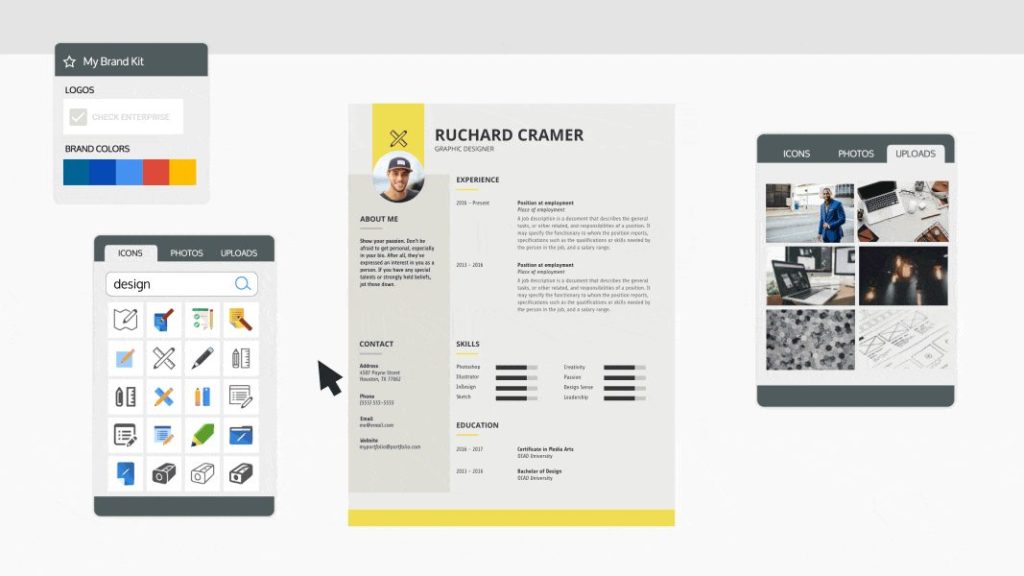
It’s also important to note that not all platforms are the same. Some are ideal for beginners who need online marketing tools to start a business, while others are tailored for established companies aiming to expand. Before committing to any subscription, you should carefully evaluate your goals, budget, and skill set.
We’ll look at each area in greater depth in the next sections, using real-life examples. By the conclusion, you’ll know exactly how to choose the right tools to achieve your company goals. This approach will not only help you compete, but also allow you to stay ahead in your sector throughout the rest of 2025 and beyond
Why Digital Marketing Tools Will Be Useful in 2025
In 2025, marketers had to deal with both new issues and new opportunities. In global markets, more and more businesses are competing for the same customers. Customers’ expectations have also changed dramatically. People now want experiences on all digital platforms that are speedy, fluid, and tailored to them. Plus, teams face data overload, which can make many customer insights unusable without the right tools to analyze and act on them.

In this situation, digital marketing tools are no longer optional; they are essential. These tools help large businesses coordinate sophisticated campaigns across multiple regions. For smaller organizations, like startups and growing ventures, the stakes are even higher. For example, digital marketing for tech companies is often constrained by small teams and limited resources, yet they still need to compete with established industry leaders.
A real example comes from 6clicks, a small Australian SaaS company specializing in risk and compliance management. Before adopting automation, the team relied on multiple disconnected platforms for CRM, marketing, and content management. This created inefficiencies and required extra manual effort. After implementing HubSpot’s integrated automation tools, 6clicks reduced marketing work by over 50%, streamlined customer communication, and significantly improved operational efficiency.

When selecting marketing tools for small business, return on investment should be a key consideration. Digital platforms allow highly targeted campaigns, ensuring only the right audiences see your ads and messages. This precision not only reduces wasted spending but also boosts conversions. As a result, businesses of all sizes can achieve higher ROI while staying competitive in the demanding 2025 landscape.
Digital Marketing Tools
Microsoft Teams is a popular corporate tool that lets you make video calls, chat, and use a cloud phone. Teams Rooms make hybrid meetings better, and Microsoft 365 Copilot gives you AI-powered suggestions right in chat.
- Things to know: Video calls, real-time chat, and file sharing
- Mio, Zoom, and 3CX are all integrated.
- Cost: $4.80 a month
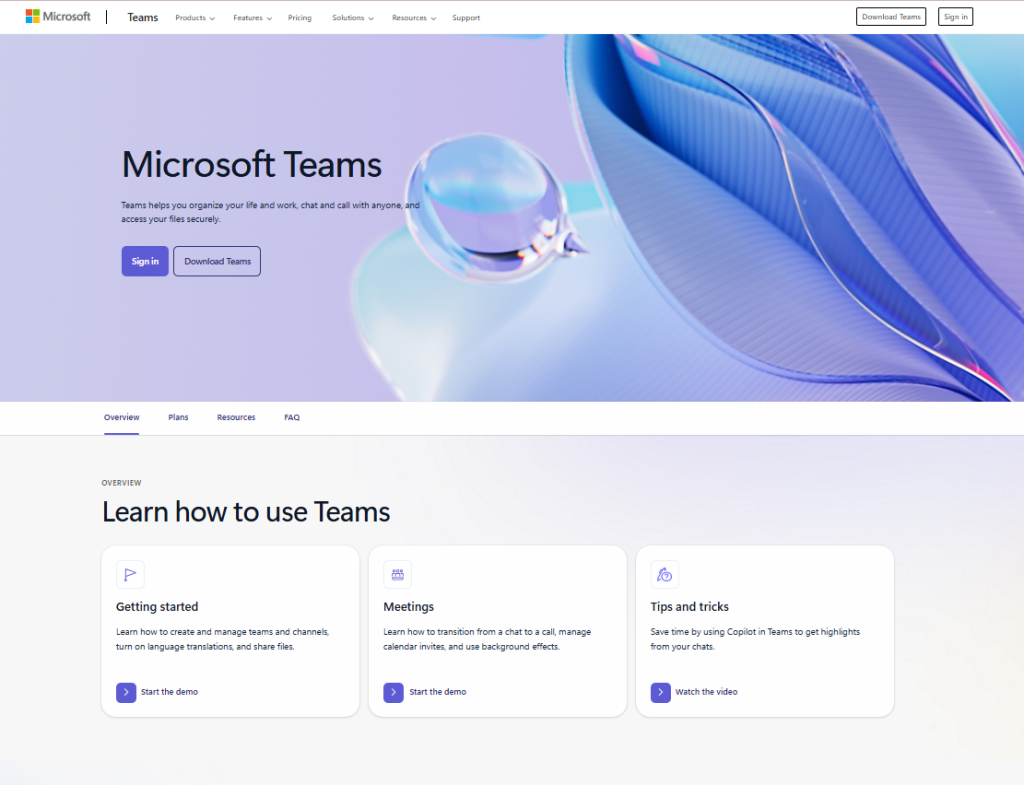
Google Workspace is a set of tools that includes email, chat, cloud storage, and video conferencing. Great for working together on projects with the help of AI.
- Features: Syncing files, keeping track of versions, and keeping data safe
- Atlassian, Figma, and SAP are some of the integrations.
- Cost: starting at $6 per month
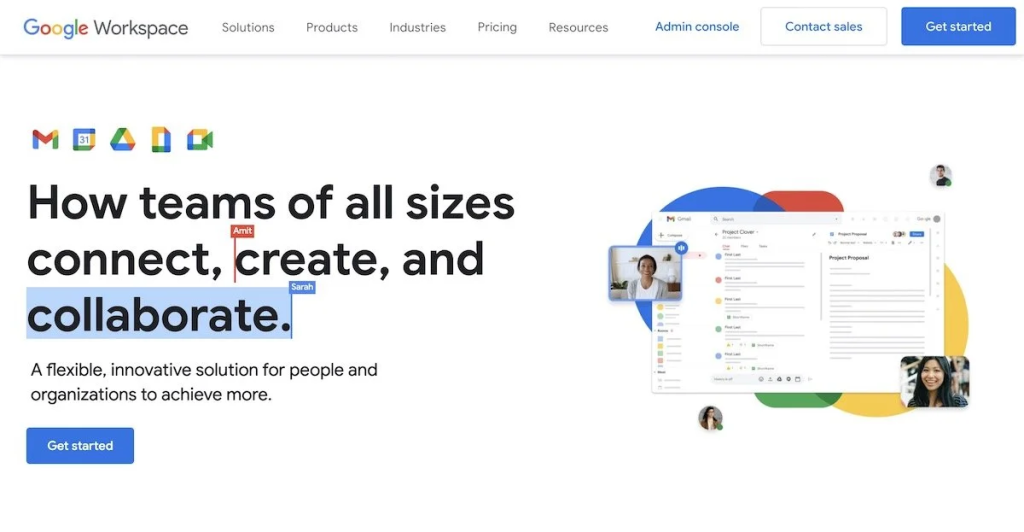
Zoom lets you make video calls, chat, and internet calls. It also lets you plan meetings, take polls, and work in flexible areas.
- Characteristics: Group chat, video in high definition, and a meeting planner
- Salesforce, ServiceNow, and Microsoft are all integrated.
- Cost: Free or starting at $15.99 per month
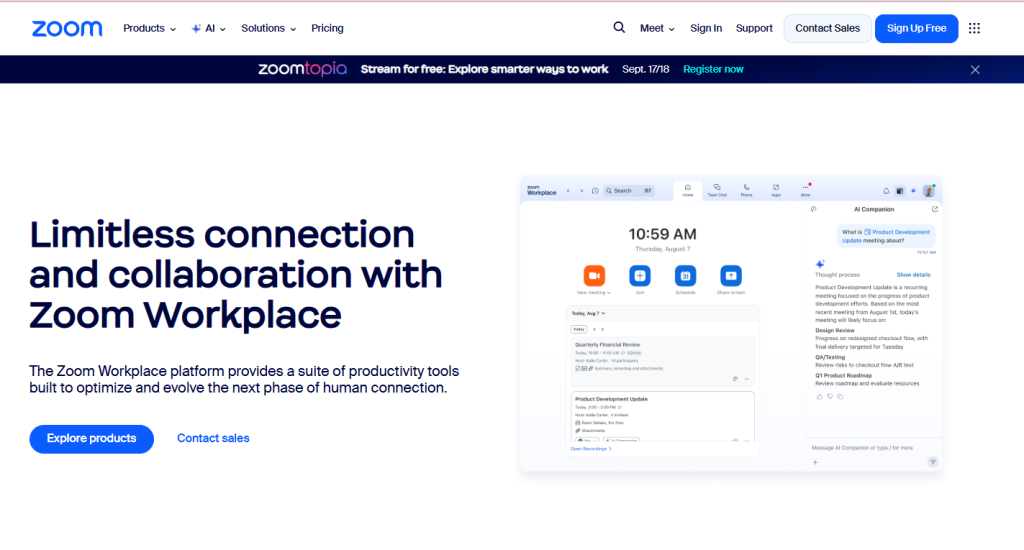
4. Asana
Asana helps teams organize projects, assign tasks, and track progress. AI features take care of everyday tasks on their own.
- @mention tags, goals, and AI planning are some of the features.
- Integrations: Adobe, Teams, and Splunk
- Price: Free or $10.99 per month

5. Trello
Trello is an easy-to-use project management platform that lets you make boards, lists, and cards. Trello Butler makes things easier by doing things automatically.
- Features: cards, lists, and boards
- Slack, Zoho Desk, and TestLodge are all integrations.
- Cost: Free or $5 a month
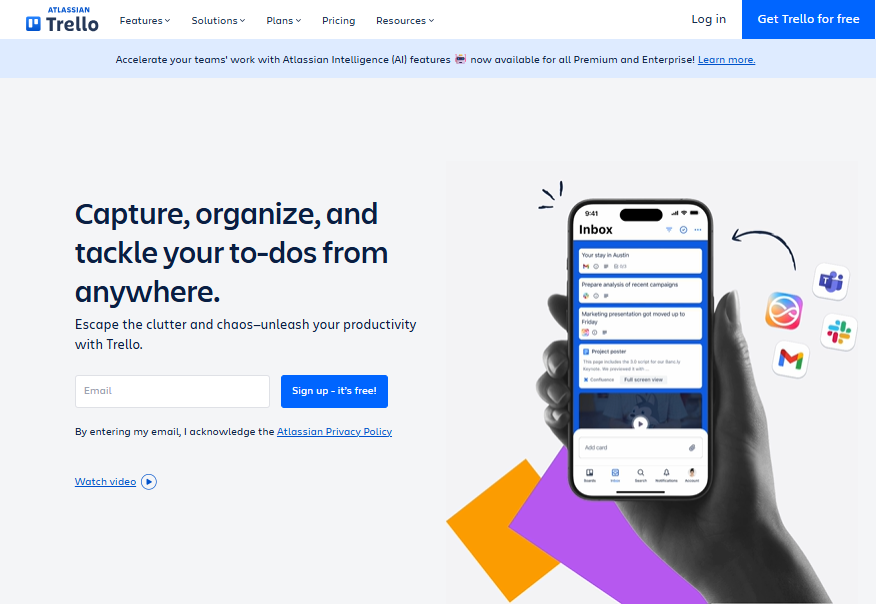
6. Slack
Slack connects teams and projects so they can send messages and work together quickly. AI assists with everyday jobs.
- Channels, secret chats, and an AI assistant are some of the features.
- Salesforce, AWS, and Google Drive are all integrated.
- Cost: Free or $6.67 per month
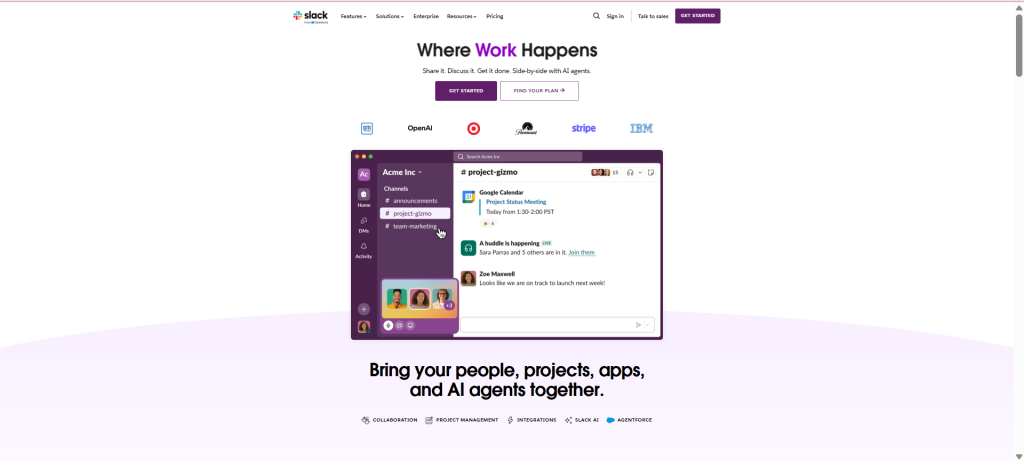
7. Zendesk
Zendesk makes it easier to handle tickets, talk to customers, and automate support with AI.
- Things to note: Chat, tickets, and AI automation
- Notion, Geckoboard, and Azure DevOps are all integrations.
- Cost: starting at $19 per month
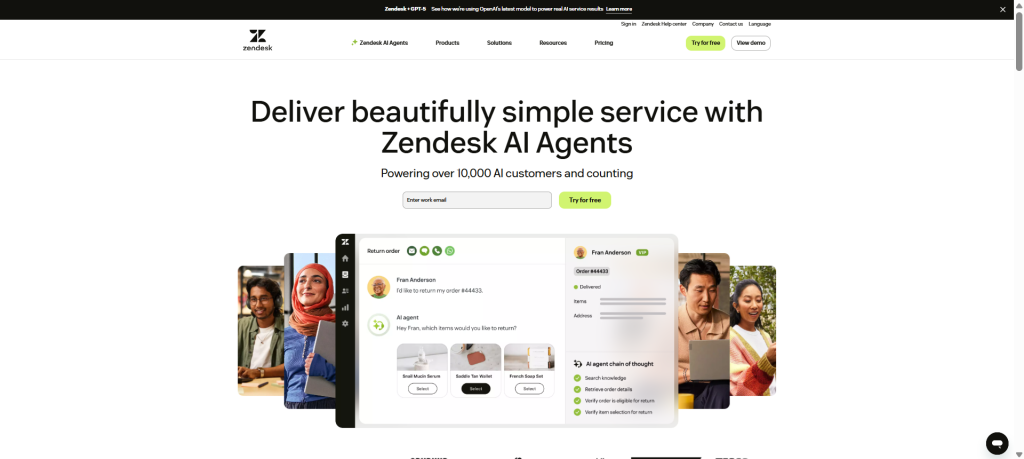
8. Sage Intacct
Sage Intacct is a cloud-based platform for accounting and financial analysis, such as reporting and accounts.
- Characteristics: Accounts, general ledger, and analytics
- Integrations: Swoop, Ramp, and Versapay
- Price: Free trial No cost | Contact Sage for pricing options
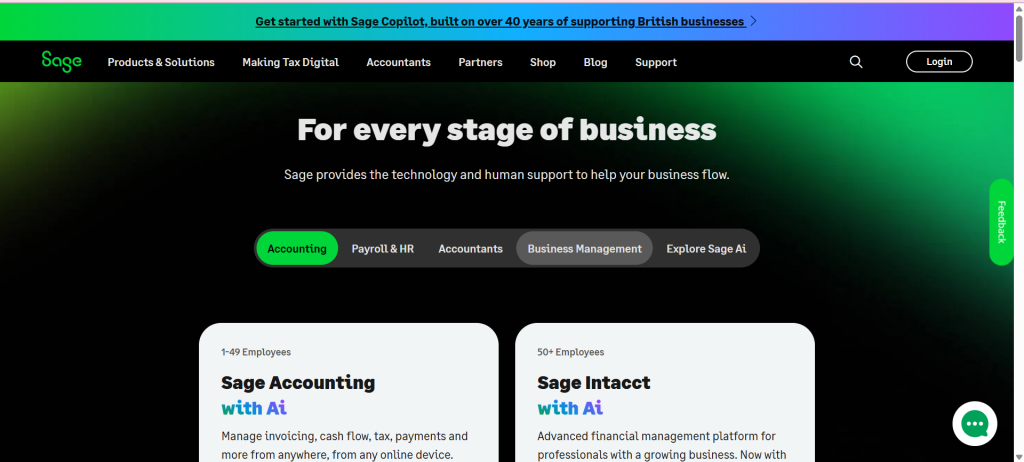
Hootsuite lets you manage many social accounts, plan updates, and keep track on their performance from one dashboard.
- Analytics, campaign optimization, and reports are some of the features.
- LinkedIn, Instagram, and Threads are all integrated.
- Cost: starting at $99 per month
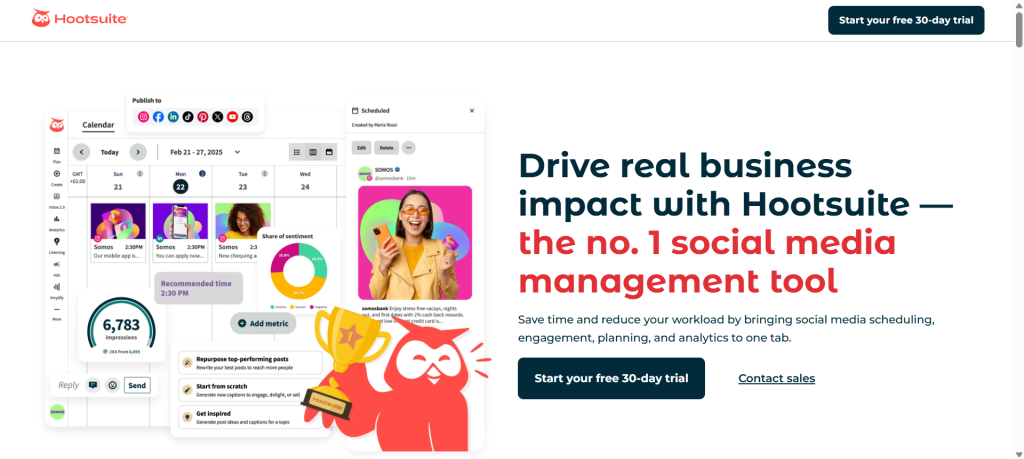
10. WordPress
WordPress is a flexible CMS for blogs and websites that comes with an editor, SEO tools, templates, and a lot of design possibilities.
- What it has: Widgets, plugins, and internal navigation
- Zoho Flow, TrustMate.io, and Zapier are all integrations.
- Cost: starting at $3 per month
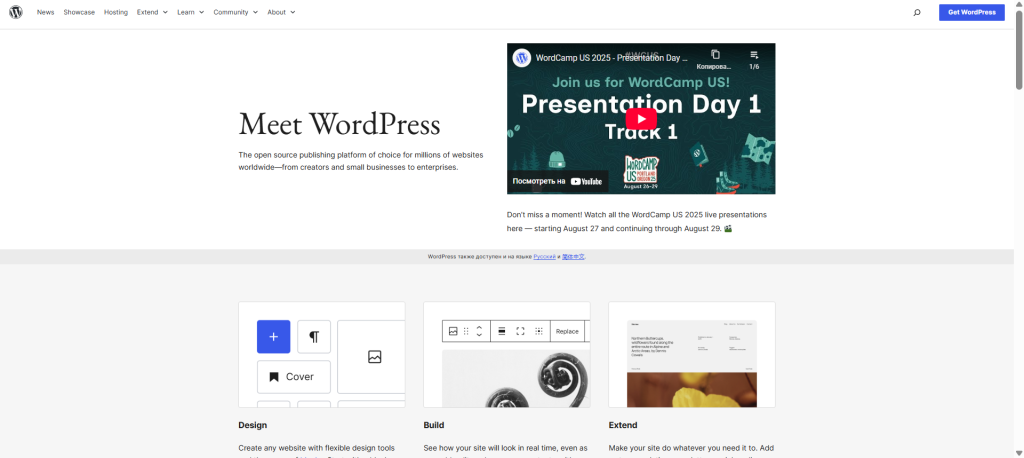
11. Dropbox
Dropbox is a cloud storage service that lets you sync files and work on them with other people. You can work on documents in real time using Dropbox Paper.
- Features: Syncing, working together, and managing users
- Google Workspace, Adobe, and HubSpot are all integrated.
- Cost: starting at $9.99 a month

Azure has cloud solutions, infrastructure, and AI models for processes that can be used in both hybrid and scalable ways.
- Characteristics: Azure AI, blob storage, and hybrid features
- Salesforce, SAP, and Oracle are all integrated.
- Price: Get in touch for pricing
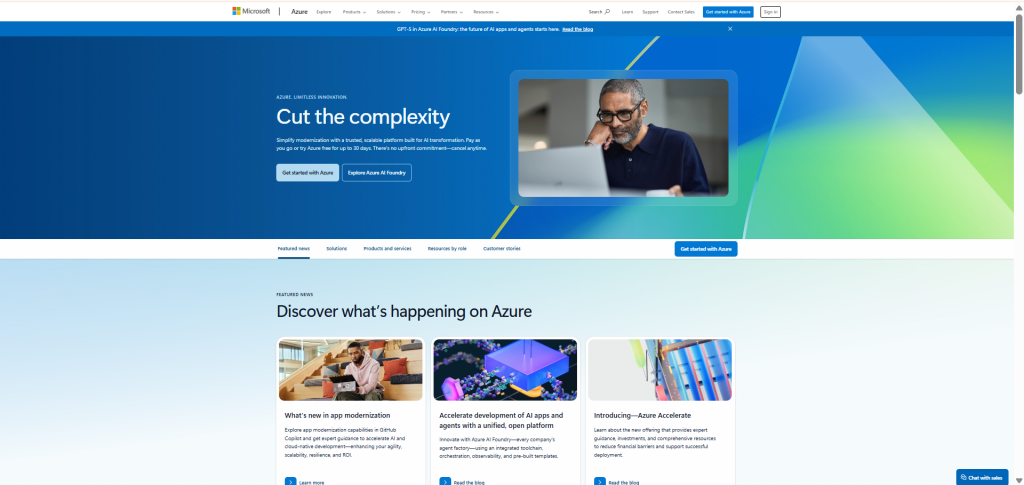
Choosing the Right Digital Marketing Tools for Your New Business
You need to know how to sell your product when you start a business, not just have a good one. You should pick the best digital marketing tools when starting a business based on your goals and the current stage of your company. This approach helps save money and expand quickly.

2.1 Write Down Your Goals: Leads, Traffic, and Conversions
Before selecting tools, decide your main goal: getting more visitors, generating leads, or increasing sales. This shows which solutions will be most effective.
- SEO systems help more people find your website.
- Email marketing and CRM systems ensure a steady flow of leads.
- CRO technologies like heatmaps and A/B testing help increase conversions.

Example: US e-commerce store evo saw its sales drop due to generic email marketing. They implemented automated sequences for cart abandonment, price-drop alerts, and post-purchase follow-ups. The result was a 20% sales increase compared to non-targeted campaigns.
Another example is Ecooking, a Danish cosmetics company. They identified issues such as unclear search and hard-to-see CTAs using heatmaps and session recordings. After improvements, checkout conversions rose by 10.5% and add-to-cart actions increased by 9.5%.
These examples show that online marketing tools to start a business are most effective when they directly support your main goal. And if you’re exploring how to start online business from home, it’s important to choose tools that are simple, effective, and affordable.
2.2 Free vs. Paid Tools: When Should You Use Each?
Most startups have limited budgets, so it’s smart to start with free options. Free SEO tools for small business, like Google Analytics and Google Search Console, provide insights into user behavior and help you form initial strategies.

| Category | Free Tools | Paid Tools |
| Communication | Basic chat and video calls, often with participant and time limits | Full-featured chat, HD video, unlimited meetings, integrations with other services |
| Collaboration | Simple file sharing and basic co-editing | Advanced collaboration: version control, process automation, enhanced co-editing features |
| Project Management | Limited boards, lists, and tasks | Advanced project management tools, automation, reporting, analytics, resource management |
| Analytics & Reporting | Minimal metrics and basic statistics | Detailed analytics, custom reports, forecasts, and data visualization |
| Integrations | Often limited to a few basic services | Wide range of integrations with multiple platforms and services, API support |
| Security & Control | Basic security and user management | Advanced security features, access rights, auditing, enterprise support |
| Cost | Free | Paid, pricing depends on features and number of users |
| Best for | Freelancers, small teams, beginners | Medium and large companies, remote and hybrid teams, users with advanced needs for features and security |
| Not ideal for | Teams with high demands for features, analytics, and security | Individuals and small teams with limited budget and only basic needs |
As the business grows, needs change. Paid tools are more powerful and provide deeper insights. For example, a US agency started with Google Analytics and later switched to SEMrush to gain competitor insights. This helped them refine strategy and increase organic traffic significantly.
The ideal strategy is to use online marketing tools to start a business for market research, then invest in premium solutions where ROI is highest.
2.3 Tool Stack Strategy: Don’t Overload, Integrate Smart
A common mistake for new companies is using too many tools. When teams rely on dozens of apps, data is lost, confusion grows, and efficiency drops.
Top marketing tools for small business owners should integrate seamlessly to create a single, cohesive system.

Example: A small US marketing team reduced its tool stack from 10 apps to 5. They combined HubSpot for CRM, email marketing, analytics, and automation, and used Slack for communication. Workflows became faster, reporting clearer, and campaigns launched more efficiently with less effort.

Even if you’re just exploring how to start online business from home, following these guidelines will help you build a robust and scalable marketing system:
- Define clear goals before choosing tools: traffic, leads, or conversions.
- Start with free SEO tools for small business, then upgrade to paid tools for deeper insights.
- Avoid overloading your team; choose integrated systems and streamline your tool stack.
Email Marketing Tools for New and Small Businesses
Email is still one of the finest tools for new businesses and small enterprises to grow. Picking the right email marketing tools for startups can turn simple newsletters into sophisticated, automated workflows that drive customers to buy products and engage with the brand.

3.1 Automation of Campaigns, Deliverability, and List Growth
Any business should look for strong features such as drip campaigns, audience segmentation, deliverability tracking, and list-building methods. Automation helps small teams save time by planning communications ahead of time and ensuring subscribers get content that is truly relevant. This mix not only increases engagement but also reduces manual workload.
For example, the design platform Canva used Mailchimp’s personalized automation workflows to improve its onboarding emails. By segmenting users and tailoring drip campaigns to their creative activity, Canva increased open rates by 25%. This demonstrates how automation makes the customer experience more personal and helps build long-term loyalty.

List growth tools ensure a constant inflow of subscribers, while deliverability tracking guarantees that messages land in inboxes. Even a two-person team can run large campaigns efficiently with these marketing tools for small business.
In today’s competitive market, startups that invest early in advanced email marketing tools for startups can achieve higher open rates, build stronger customer relationships, and generate sustainable growth without exhausting their budgets.
SEO Solutions that Will Help You Build Authority Right Away
New businesses need to quickly show that they are in charge online. Using the right free SEO tools for small business will help your small business grow and gain more attention over time. Even new businesses can stay ahead of their competitors by spending a little effort on keyword research, analytics, and keeping track of their rankings.
4.1 Searching for Keywords, Making Pages Better, and Keeping an Eye on SERPs
To get good SEO, the first thing you need to do is learn about keywords. You can use Google Keyword Planner, Ubersuggest, and Moz to find out which words will bring people to your site. For instance, keyword research tools for new businesses help uncover words that a lot of people look for but that aren’t extremely competitive in their location. If you know what your potential consumers want, you can develop content that matches their needs and attracts them to your business.

After you know which keywords to utilize, on-page SEO ensures that your content is easy to find and useful. Meta titles, meta descriptions, header tags, and alt text for photos are all items that can affect how well a website ranks in search engines.
Example: BrightHome Cleaning Services
In Austin, Texas, BrightHome Cleaning Services wanted more people to find it on Google and bring in more clients from nearby neighborhoods. They used Ubersuggest and Google Keyword Planner to search for terms like “eco-friendly home cleaning” and “residential cleaning Austin.” Next, they optimized meta titles, meta descriptions, and header tags on every page to include the right keywords clearly. They also incorporated location-based keywords to improve their local search results.
BrightHome used Moz to track keywords weekly and Google Search Console to monitor which terms were driving clicks and impressions. After three months, the company saw a 30% increase in organic search traffic, higher rankings for key local keywords, and a noticeable jump in client inquiries. This demonstrates how combining on-page SEO with consistent tracking helps build authority from day one.
Monitoring performance is equally important. Analytics tools for early-stage companies help gather insights on site visitors, traffic sources, and conversions. Paired with SERP tracking, businesses can observe keyword performance over time and adjust strategies accordingly. Weekly reviews help identify gaps, correct mistakes, and capitalize on new opportunities.

By using free SEO tools for small business like Ubersuggest or Moz, making frequent on-page updates, and consistently tracking rankings, new businesses can steadily increase organic traffic and establish trust with both search engines and customers. With focused keyword strategies, proper content optimization, and ongoing analysis, early-stage companies can build authority right from the start.
Tools for Social Media Marketing That Will Help You Build Your Audience
Building an active online community is vital for the long-term growth of new businesses and startups. Using the right social media marketing tools for business launch can help you focus your efforts, interact with your audience, and establish your brand from day one. These tools may help even small businesses stay on track, monitor comments, and track their progress effectively.
5.1 Planning, Listening, Being Involved, and Growing
Planning ahead is a key aspect of a social media strategy. Tools like Buffer and Hootsuite let businesses plan and automate posts across multiple social media channels. By organizing their content ahead of time, startups can maintain a consistent posting schedule without having to manage every update manually. This consistency keeps followers engaged and improves the visibility of your content across networks.

Having tools for social listening is equally important. Mention and Brand24 track what people are saying online about your brand, your competitors, and industry trends. These solutions alert you when someone mentions your business or related keywords, allowing you to respond quickly and appropriately. By monitoring audience sentiment, businesses can resolve issues, celebrate positive mentions, and adjust their content to better resonate with followers.
Listening and scheduling work seamlessly with engagement tools. They help businesses manage comments, messages, and interactions efficiently. Prompt responses to questions and direct messages build trust and foster loyalty within the community. Together, these tools provide a comprehensive framework for managing social media presence while saving time and effort.
For Instance: Glossier
Glossier, a small New York-based cosmetics startup, leveraged social media marketing tools for business launch to grow its Instagram presence. The company scheduled posts consistently to maintain audience engagement and used social listening to monitor brand mentions and feedback. The team tracked which posts received the most interaction, replied promptly to comments, and engaged followers through stories and direct messages.
Within just a few years, Glossier’s Instagram account expanded from a few thousand followers to hundreds of thousands. This rapid growth increased brand visibility, built a loyal community, and positioned Glossier as a trusted voice in the beauty industry. Their success demonstrates how scheduling, social listening, and engagement tools can turn social media into a powerful business growth engine.

For any new business, investing in scheduling, social listening, and engagement tools provides a strong foundation for social media success. These tools help maintain organization, respond to audience feedback, and track performance efficiently. By leveraging social media marketing tools for business launch, startups can not only increase their followers but also build a dedicated, engaged community from the very beginning.
AI and Marketing Automation Tools That Help You Get More Done
Businesses and marketers need to leverage AI marketing tools and automation tools for digital marketing to make their jobs easier, save time, and run campaigns more efficiently. In today’s marketing environment, speed, precision, and personalization are all crucial. AI-powered solutions help achieve all three. By integrating AI and automation into routine tasks, companies can focus on strategy and innovation while routine marketing work is handled automatically.
6.1 Automate Tasks That You Undertake Over and Over Again to Speed Up and Grow Your Business
AI and automation excel at completing repetitive tasks quickly and consistently. These tools are especially useful for content creation, ad optimization, and customer communication. AI-powered writing platforms like Jasper and ChatGPT can generate blog posts, social media content, and email drafts in minutes while maintaining a consistent brand voice across channels. This saves marketers time previously spent drafting and editing, allowing them to focus on higher-value activities such as planning and campaign strategy.

AI also significantly enhances ad performance. Tools like Adext AI automatically adjust bids, allocate budgets, and test multiple ad variations in real time. These platforms continuously analyze performance data to ensure that ad spend is directed toward the audiences and creatives that perform best, maximizing ROI and efficiency.
Chatbots powered by AI are transforming customer engagement. AI chatbots can answer FAQs, qualify leads, and even provide personalized recommendations around the clock. This ensures quick responses, improves customer satisfaction, and frees marketing teams from repetitive messaging tasks.
Example: eBay Using AI-Powered Ad Optimization
eBay, one of the largest online marketplaces, leverages AI marketing tools to optimize its advertising campaigns and achieve a higher return on investment. The company implemented technology that automatically identifies the right audiences across ad networks and manages bidding by tracking clicks, conversions, and user behavior in real time. This approach helped eBay reduce spending on underperforming ads while improving the effectiveness of successful campaigns.
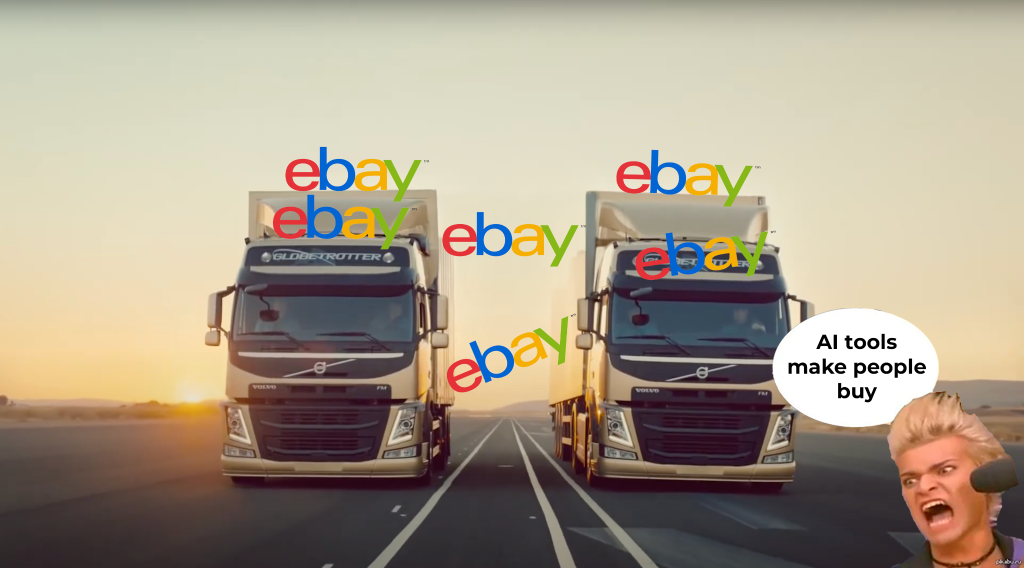
By automating bid management and audience targeting, eBay’s marketing team could focus on strategic activities like creating ad creatives and launching new campaigns. As a result, the company saw a measurable improvement in ad ROI. This demonstrates how AI and automation tools for digital marketing can drive both productivity and profitability.
This example highlights how AI-powered solutions simplify repetitive tasks, optimize ads, and deliver tangible business results. By leveraging AI for content creation, ad management, and customer engagement, businesses can save time, enhance operations, and achieve better outcomes across all digital marketing channels.
Analytics Tools That Let You Use Data To Make Choices
It’s quite vital for new businesses who want to grow as much as possible and get the most out of their marketing resources to make sensible decisions. Analytics tools for early-stage companies can help new firms learn about their clients, keep track of how well they are doing, and make decisions based on facts that lead to outcomes. Using the correct digital marketing tools to keep track of ROI, figure out where traffic comes from, and judge how well a campaign is doing is a terrific way to make sure that every marketing dollar is well spent.

7.1 Watch your return on investment (ROI), traffic sources, and attribution
Analytics tools for early-stage companies are wonderful because they can show you how well your campaign is doing and how much money you are making from it. Google Analytics, Hotjar, and Mixpanel are some of the tools that can help businesses learn a lot about their website traffic, how people use it, and how customers connect with them. If startups know where their visitors originate from, how they travel about a site, and what actions lead to conversions, they might be able to make better decisions about how to sell their goods and use their resources.
Keeping track of their channels lets businesses know which ones are functioning and which ones aren’t. This helps young businesses manage their money better and focus on the things that really matter. For example, teams might be able to make their campaigns better by figuring out which marketing channels bring in the most qualified leads or sales. This makes more people want to engage and buy.

For instance, when it comes to marketing, Dropbox is getting the most bang for its buck.
Dropbox is a cloud storage provider that helped fledgling firms with their marketing by giving them access to analytics tools. Dropbox used Mixpanel and its own analytics tools to find out what customers did once they joined up, which channels brought in the most active users, and which paths led to paid subscriptions.
Analytics indicated that customers who signed up for Dropbox through the referral program were far more likely to use the service and move to paid plans than people who signed up in other ways. Because of this information, Dropbox reallocated money from marketing campaigns that weren’t working as effectively to the referral program. Making decisions based on data led to higher conversion rates, better returns on marketing spending, and faster growth of the user base.
This example highlights how analytics tools for early-stage companies can help new businesses find better ways to promote themselves. By keeping an eye on ROI, traffic sources, and user behavior, businesses can continuously improve and make sure they use their resources wisely.
In short, entrepreneurs may learn about the customer experience, use data to make choices, and get better results from their marketing by using analytics tools for early-stage companies. These tools help new businesses keep track of their money, optimize their campaigns, and get the most out of their spending. For instance, they might use Google Analytics to find out how well their sites are doing and Hotjar and Mixpanel to see how people interact with them. Using analytics tools correctly ensures that marketing decisions are based on facts rather than guesses, helping businesses grow efficiently from the start.
How to Find Freelancers to Do Marketing Work
Small firms and new businesses may not be able to handle all of their marketing on their own. It can be too expensive to hire a full-time marketing team all at once, and you might not have all the capabilities you need in-house. Businesses can hire qualified people when they need them through freelancing sites like Upwork, Fiverr, and Toptal. This helps firms grow swiftly without spending a fortune. Using freelancers alongside digital marketing tools for startups ensures that campaigns run efficiently and performance can be tracked accurately.

8.1 Upwork, Fiverr, and Toptal: When and How to Delegate
Every freelance platform has its pros and cons. Upwork offers a wide range of specialists for ongoing projects, including SEO, content creation, design, and advertising. Fiverr is perfect for short-term, task-based projects, such as designing a logo or creating a quick ad campaign. Toptal provides access to top-tier, highly experienced professionals for specialized marketing needs. The best platform depends on your project size, budget, and desired speed of delivery.
When delegating work, it’s crucial to provide precise instructions. Include goals, deadlines, target audience, and brand guidelines. Additionally, using online marketing tools to start a business — such as Trello, Asana, or Monday.com — helps you track freelancer progress and ensures tasks are completed on time, even remotely.
How to Find and Hire Freelancers Remotely
Before hiring, review portfolios and client reviews carefully. Conduct interviews or trial tasks to evaluate skills and communication. Set clear milestones and maintain regular check-ins to monitor progress. A structured onboarding process helps freelancers understand your business and deliver high-quality work efficiently.

Example: Small Business Delegating Marketing Tasks
A real-world example is Airbnb. In its early stages, Airbnb had a small internal team and limited resources for marketing. To grow efficiently, they hired freelancers from Upwork and Fiverr to handle graphic design for online ads, social media posts, and digital advertising campaigns.
By delegating these tasks, Airbnb’s internal team could focus on platform development, improving customer experience, and connecting with more hosts. Freelancers used analytics and project management tools to track ROI, campaign performance, and user engagement. This approach allowed Airbnb to execute professional marketing campaigns without hiring full-time employees, accelerating growth in a competitive market.

Freelancer platforms combined with the right digital marketing tools for startups and online marketing tools to start a business allow small companies to access specialized skills, run campaigns successfully, and optimize internal resources. This strategy helps businesses scale effectively while leveraging external expertise.
How Different Companies Set Up Their Tool Stacks
To get the best results, you should customize your tool stack to fit your business. This helps you stay organized and grow effectively. When teams have the right tools, they can focus on strategy instead of worrying about execution. Here are some tool setups that businesses can use to their advantage.
9.1 Someone Who Has Nothing to Start With
If you own a small business and don’t have a lot of money, it’s crucial that your tools are simple, budget-friendly, and effective. A basic stack might include Google Analytics to track site traffic, free SEO tools like Ubersuggest or Google Keyword Planner, and a basic email marketing platform like MailerLite or Mailchimp. These tools help founders track progress, improve workflows, and engage with their audience without high costs.

At first, Pat Flynn ran several projects, and Smart Passive Income was one of them. He used free keyword research tools for new businesses to grow his blog traffic from zero to over 5,000 visitors per month. By identifying high-potential topics and optimizing content, Pat steadily built a loyal audience. This example shows that even bootstrapped founders can achieve measurable growth using the right minimal tool stack.

9.2 How to Open a Small Business
Small businesses need tools that support team collaboration, client communication, and multi-channel campaign management. Popular options include Trello and Asana for project tracking, HubSpot for client management and reporting, and SEMrush for SEO and marketing insights. Using these tools together ensures smooth operations and transparency with clients.

Case: Wpromote, a small-to-medium digital marketing agency, uses HubSpot to manage client relationships, SEMrush to handle SEO and PPC campaigns, and Trello for project management. This combination allows their team to run multi-channel campaigns efficiently, monitor ROI, and provide detailed reporting. By leveraging the right marketing tools for small business, agencies can scale operations and deliver high-quality work without friction.
9.3 Use Stack to Make Money as an Affiliate Marketer
Affiliate marketers need a stack that focuses on landing page creation, ad optimization, and performance tracking. Recommended tools include AI-powered ad platforms like Jasper.ai, automation tools like Revealbot, landing page builders such as Unbounce or ClickFunnels, and analytics platforms like Google Analytics or Voluum for conversion tracking.

Case: Patricia Bright, a prominent affiliate marketer, uses AI tools to craft engaging ad copy, Unbounce for high-converting landing pages, and analytics to monitor click-through rates and commissions. Combining these tools allows her to optimize campaigns in real-time, increase conversions, and maximize affiliate revenue.
Building a tool stack tailored to your business—whether you’re a solo founder, a small agency, or an affiliate marketer—helps you operate efficiently and see measurable results. Using marketing tools for small business and the right supportive software empowers teams to improve campaigns, optimize resources, and grow without unnecessary complexity.
Last Words: Create the Digital Marketing Stack You Want
You can’t just buy software for your digital marketing stack. You need to create a structure that fits your budget, team size, and business goals. By choosing the right digital marketing tools, you can confidently design, run, and measure campaigns effectively. A stack that simplifies workflows, supports collaboration, and provides actionable insights can help any business, whether it’s a solo entrepreneur, a small agency, or an affiliate marketer.
When assembling your stack, think carefully about the purpose of each tool. Analytics platforms allow you to track website traffic and conversions. Email marketing tools enable meaningful communication with customers, while SEO or keyword research software ensures that the right audience finds your content. Combining these tools properly can help automate repetitive tasks, improve decision-making, and guide strategies based on real data.
To get the most out of your stack, test and iterate over time. There is no one-size-fits-all collection of tools that works immediately. Start with simple, online marketing tools to start a business, and monitor how they impact productivity and campaign performance. Continuously refine your setup by removing underperforming tools, experimenting with new platforms, and improving workflows. This iterative approach keeps your stack functional and growth-oriented, rather than a collection of unused software.
Real-world success stories illustrate the value of the right tools. Companies like Airbnb and Buffer used freelance platforms, analytics software, and project management tools to scale their marketing efficiently. Solo entrepreneurs like Pat Flynn built audiences from scratch using email marketing and keyword research. Affiliate marketers such as Patricia Bright combined AI-powered ad tools, landing page builders, and analytics platforms to maximize conversions. These examples show that a well-planned stack can accelerate growth and deliver measurable results, regardless of business size.
Building your ideal digital marketing stack is an ongoing journey. Start with essential tools that address your immediate challenges, then expand as your business grows. Experiment, track results, and refine your setup continuously. A strong stack not only meets operational needs but also fosters innovation, helps you stay competitive, and drives better outcomes.
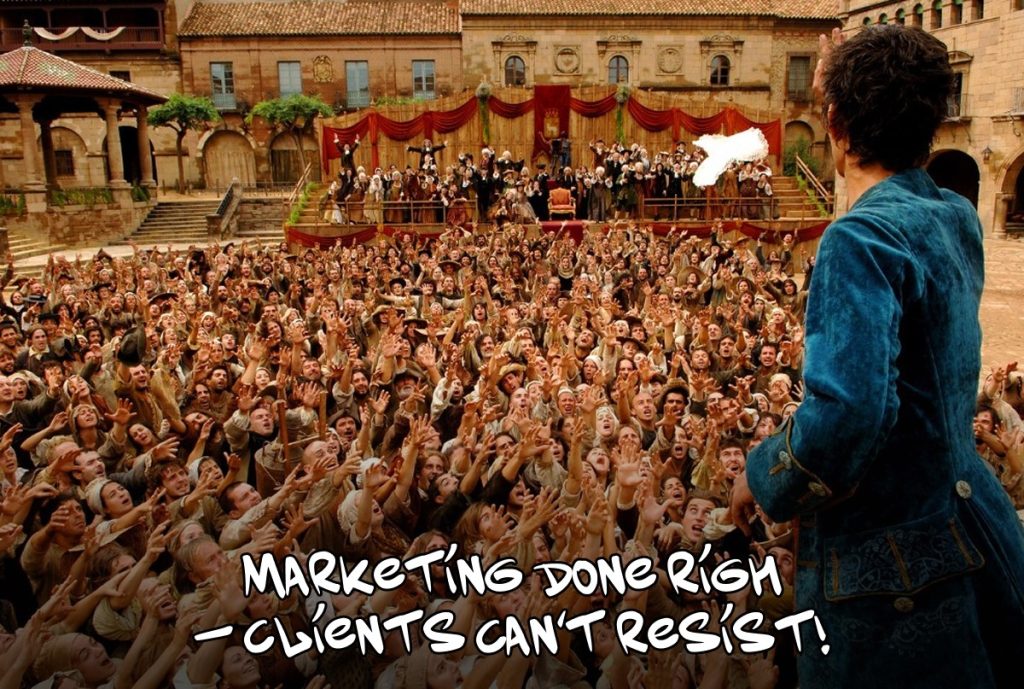
Take action today: evaluate your current setup, explore new digital marketing tools and online marketing tools to start a business, and start building a stack that truly works for you. A simple list of software isn’t enough—your stack is the foundation for smarter decisions, faster growth, and lasting impact.
FAQ
What are the greatest digital marketing tools for new businesses in 2025?
In 2025, the best digital marketing tools for organizations include SEO platforms like Ubersuggest that help you find keywords, email marketing tools like Mailchimp, social media schedulers like Buffer, and AI-powered automation systems like Jasper. These technologies let startups run campaigns more smoothly, engage more users, and achieve better results without overextending resources. Using the right digital marketing tools for startups from the outset ensures that campaigns are efficient and growth-oriented.
How can small businesses use online marketing tools to grow?
Online marketing tools to start a business help small businesses by making them easier to find, automating repetitive processes, and providing crucial insights through analytics. Businesses can reach more customers, improve conversions, and run campaigns more cost-effectively using SEO, social media management, email campaigns, and paid ads. Incorporating these marketing tools for small business into daily operations can significantly accelerate growth and make campaigns more efficient.
Can small businesses use free SEO tools to sell themselves?
Yes, for sure. Google Search Console and Ubersuggest are two free SEO tools for small business that allow you to perform keyword research, audit your website, and track your rankings in search results. While they may not offer all the features of paid tools, these platforms are perfect for startups or businesses just getting started. They also serve as excellent keyword research tools for new businesses, helping companies improve their organic search performance without any upfront costs.
What should I think about when I pick digital marketing tools for my new business?
When choosing tools, keep in mind your business goals, budget, tool integrations, and ease of use. Start with the basics of email marketing, SEO, and social media, then add AI or paid solutions as your needs grow. Avoid overloading your setup to keep workflows efficient. Knowing how to choose digital marketing tools allows you to select the best digital marketing tools when starting a business without wasting time or money.
What are the benefits of email marketing for small businesses and new businesses?
Email marketing tools for startups automate campaigns, segment clients into groups, and ensure messages reach the right audience. They enable personalized communication, nurture leads, and drive conversions. Platforms like Mailchimp, ConvertKit, and ActiveCampaign are excellent marketing tools for small business, helping startups and small enterprises manage email campaigns efficiently and effectively.
What part do AI marketing tools play in online marketing?
AI marketing tools make it easy to perform tasks like creating content, optimizing ads, and segmenting customers repeatedly. This increases efficiency and reduces errors, allowing businesses to scale campaigns quickly. Tools like Jasper for content creation and Adext AI for ad management are prime examples of automation tools for digital marketing, helping companies streamline processes and improve campaign performance.
How useful are analytics tools for organizations that are just starting out?
Businesses that are just starting out need analytics tools for early-stage companies to monitor website traffic, user behavior, and return on investment (ROI). These platforms provide data that helps make informed decisions about budget allocation and marketing strategy. Google Analytics, Hotjar, and Mixpanel are commonly used by early-stage businesses and are essential digital marketing tools for guiding strategic choices and optimizing performance.
Reviews
- As a solo founder bootstrapping my online store, digital marketing tools have been a game-changer. I started with free SEO tools for small business like Ubersuggest and Google Search Console, which helped me understand exactly what my audience is searching for. After just two months, I saw my organic traffic double. You don’t need a large team to grow when the right tools are doing the heavy lifting.
- We’re a small SaaS startup, and selecting the right digital marketing tools for startups made a huge difference. Email marketing tools like MailerLite helped us automate onboarding, while keyword research tools for new businesses provided clarity on which content to prioritize. In less than six months, we began ranking for niche keywords and consistently generating leads.
- I’ve been in affiliate marketing for over five years, and honestly, the best digital marketing tools when starting a business are the ones that save time and provide actionable data. Tools like SEMrush and Buffer allow me to manage SEO and social media in a single, streamlined workflow. If you’re serious about growing online, you can’t underestimate the power of automation tools for digital marketing.

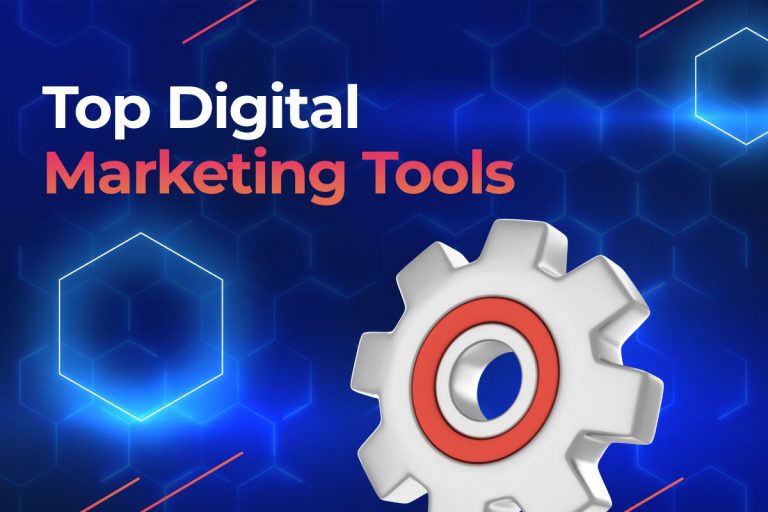
0 Comments